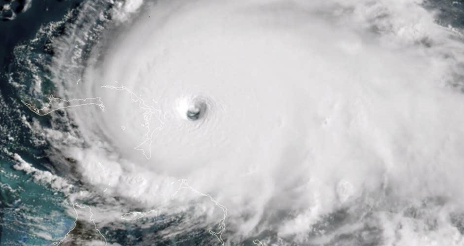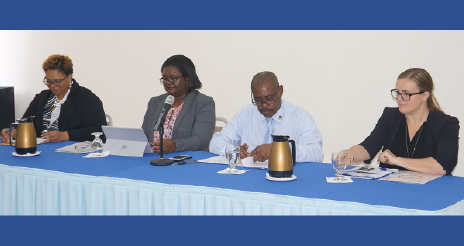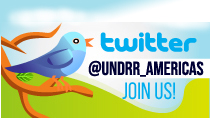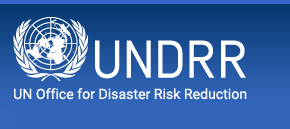- Our Mandate
- Mission and Objectives
- UNDRR in the UN
- Work Programme & Annual Reports
- Results Based System
- Work Partnerships
- Headquarters - Geneva
- SG-UN representatives for DRR
- Regional Office – The Americas and the Caribbean
- Head of the Regional Office – The Americas and the Caribbean
- What is Disaster Risk Reduction?
- What is the International Strategy?
- History of UNDRR
Gender and vulnerable groups are important focus areas in the Caribbean early warning systems (EWS)
 Photo credits: Google.com
Photo credits: Google.com
By: United Nations Office for Disaster Risk Reduction (UNDRR) – Regional Office for the Americas and the Caribbean.
PANAMA CITY, Panama, 10 September, 2019 – During 10 – 11 September 2019 Saint Vincent and the Grenadines became the second pilot country for the gender and vulnerable groups training and national consultation, just after Saint Lucia, the first pilot country to have the same training on 30 July 2019. These trainings are part of the development of a regional strategy to strengthen and streamline early warning and hydro-meteorological services in the Caribbean region. This essential step is expected to contribute to the improvement of early warning systems (EWS') results in the Caribbean through the integration of gender aspects and other vulnerable groups into the Regional EWS Strategy.
Both workshops had the objectives of enabling dialogues among different actors working with either gender or EWS, to increase the knowledge of gender and EWS at the national level, to define how does gender, age and vulnerable groups influence the 4 pillars of the EWS in the Caribbean region and to pre-identify what is needed in order to fill in the gaps at the national and regional levels. The workshops were co-organized by the national Gender Bureau, the National Emergency Management Office and UNDRR. Governmental institutions, Intergovernmental organizations (IGOs) and non-governmental organizations (NGOs) working with early warning systems, NGOs working with gender matters and women's organizations.
The development of the Regional EWS Strategy is part of the CREWS Caribbean – Strengthening hydro-meteorological early warning services in the Caribbean – is a 3-year Project, financed by the CREWS Global Initiative. It is implemented by the World Bank (WB), the World Meteorological Organization (WMO) and the United Nations Office for Disaster Risk Reduction (UNDRR), with the Caribbean Disaster Emergency Management Agency (CDEMA), the Caribbean Meteorological Organization (CMO), the Caribbean Institute for Meteorology and Hydrology (CIMH) and national representation guiding the implementation through the Project Steering Committee consultation.
The Sendai Framework for Disaster Risk Reduction 2015-2030 stablishes that disaster risk reduction requires an all-of-society engagement and partnership. It also requires empowerment and inclusive, accessible and non-discriminatory participation, paying special attention to people disproportionately affected by disasters, especially the poorest. A gender, age, disability and cultural perspective should be integrated in all policies and practices, and women and youth leadership should be promoted.
Disasters affect women, girls, boys and men differently as these groups face different exposure, participation, power and vulnerability conditions that influence risk. Gender inequality and social marginalization of certain groups increases vulnerability to disasters, heightens exposure to risk and restrains capacity, often also increasing the marginalization and poverty traps that already exist in the society. When sex- and age-disaggregated data is collected, the research shows that certain groups are disproportionally affected by disasters, are more likely to die in disasters, and have different and uneven levels of resilience, as well as uneven capacity to recover. Understanding the vulnerability and exposure factors of these groups helps to target communication, preparedness and response measures for those most at risk, thus increasing the results of the EWS.
 Photo credits: www.gov.vc
Photo credits: www.gov.vc
Related links:
https://www.crews-initiative.org/en/projects
Follow the UNDRR news online :
 Now we have twitter account @UNDRR Américas y el Caribe
Now we have twitter account @UNDRR Américas y el Caribe
JOIN US!
Tweets por el @UNDRR Américas y el Caribe
